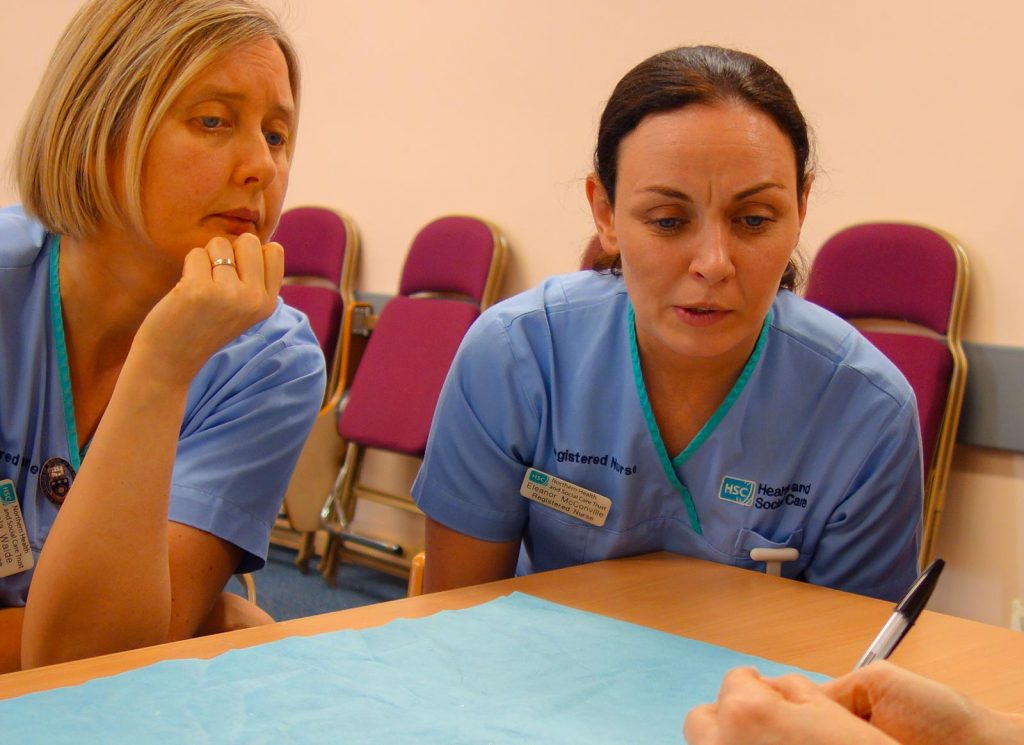A clinical nurse professional (CNS) is a certified, graduate-level certified nurse who is also certified in a specific specialized of interest. Obtaining specialized training shows a postgraduate degree of clinical abilities and understanding in a particular niche of nursing. In order to be a CNS, you should pass an approved clinical nurse specialist course that emphasizes in the scientific skills needed for the position.
Scientific nurse experts are required to meet a higher level of care than primary nurses. Because they provide more specific care in collaboration with physicians, this is. As a result, CNSs need to have a much greater level of education than primary caregivers.
Emerging As a Medical Nurse Expert Now A Days
The requirements to end up being a CNS consist of conclusion of a master's degree program, supervision or certification by a board of nursing, and the conclusion of nationwide accreditation requirements.
A master's degree program prepares CNSs for clinical nurse specialists' tasks that involve direct patient care in health centers or other health care settings. It might also prepare individuals for positions in physician's offices or other health care facilities.
For those interested in concentrating on CNA skills, a four-year degree program will prepare you for a profession as a CNA. To be thought about for a four-year degree program, a student should have a high school diploma or a GED and should pass the NCLEX-RN test.
When a trainee has actually made his/her degree, he/she must end up being a Registered Nurse or RN, in order to begin working as a CNS. A few states allow students to finish their master's degree in nursing before carrying on to the next level, while many require a four-year degree. In order to end up being a Registered Nurse, a candidate should pass the state board test.

Trainees interested in specializing in the specialized can get their Registered Nurse license after they pass the board test. Once a trainee has actually finished an accredited medical nurse expert degree program, he/she should be qualified to make an application for positions with local hospitals, health care centers, doctors and centers' workplaces.
How to Train as a CNS Clinical Nurse Specialist – Easy Overview
A couple of states permit the non-medical professional to become a CNS in the same way as medical nurses. In these states, nurses are required to complete a training program and pass a licensing test to get approved for the task. Candidates who do not have a degree in nursing will need to finish a core curriculum that provides them with understanding of patient care and standard science. After training, graduates will then have the ability to take the licensing examination and will be certified to work as a nurse expert in the majority of states.
Patients tend to feel more comfy handling clinical nurse professionals instead of with generalists or nurses. This is because patients are more likely to http://leticiatcyx953.yousher.com/emerging-as-a-clinical-nurse-expert-these-days get care from an expert, as specialists manage more customized scenarios. A CNS is likewise trained to manage cases and examine their patients' needs better than a nurse.
Nevertheless, specialists of medicine think that nurses carry out better psychological and physical recovery than scientific nurse professionals. If you feel that you would benefit from focusing on either psychology or physical therapy, you need to complete an associate's degree or bachelor's degree program at a neighborhood college that trains nurses or look into programs at occupation and career schools.
There are many opportunities for clinical nurse professionals, as tasks varying from full-time to part time and self-employment are widely readily available. Work settings consist of medical facilities, nursing houses and other medical centers, and there is even a shortage of specialists in some locations due to the aging Child Boomers. The primary job function is to handle the scientific day to day activities of the center, and to make sure that patients are treated with dignity and care. Some CNSs work in house healthcare units where clients must be admitted to the health center, and they offer medical and psychological support to homeowners who can not live at home.
Emerging As a Medical Nurse Professional Now A Days
Medical nurse specialists perform direct patient care in a range of nursing positions, consisting of full-time, part-time and home health assistants. The tasks of these professionals are crucial to the success of every hospital, nursing house and other medical facility. They offer the direct contact with clients that is so crucial to the nurses and medical professionals administering treatment.
This position needs excellent organizational abilities, interpersonal abilities, a sense of humor, along with certification from one of the many certified nursing programs. Since this job requires direct patient care, it is expected that CNSs will be involved in numerous discussions with patients and their households concerning medical treatments, medications, and treatments that will be most beneficial to them.








